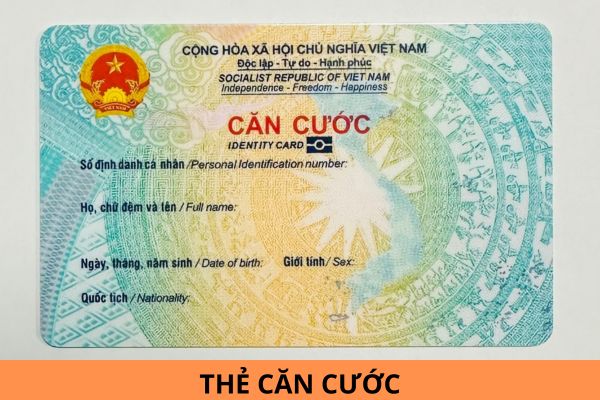What are partially invalid civil transactions in Vietnam? Is it possible to claim compensation when the contract is invalid in Vietnam?
What are partially invalid civil transactions in Vietnam? Is it possible to claim compensation when the contract is invalid in Vietnam? Will signing a contract under compulsion lead to invalidity in Vietnam?
What are partially invalid civil transactions in Vietnam?
Civil transactions are partially invalid. Hello, I have a question to ask as follows. I have performed a construction contract with 2 parts, the main contract and the appendix. Recently, it was announced that the appendix due to violation of some construction guidelines may be partially invalid. I wonder why I don't understand what are partially invalid civil transactions? I hope you can answer me. Thank you!
Reply:
The content you ask about partially invalidated Civil Transactions is specified in the Civil Code 2015 (Effective from January 1, 2017).
According to this regulation, a civil transaction shall be partially invalid when one part of the transaction is invalid but such invalidity does not affect the validity of the remaining parts.
(Article 130 of the 2015 Civil Code)
Therefore, if your contract appendix is partially invalid, the provisions of the other parts will still be in effect.
The above is the reply of us on the partial invalidity of civil transactions as prescribed in the Civil Code 2015. Please refer to this document for better understanding.

Is it possible to claim compensation when the contract is invalid in Vietnam?
I bought Mr. Tho's house, but I didn't have any documents because I believed that it was a colleague of each other, so I bought the two parties and just established the written contract. After moving in for 1 year, Ms. Hue came and asked my family not to go out because she is the real owner of the house I live in and has no authorization to sell the house. I know that if the contract is invalid, both parties will refund each other what they have received, because house prices are now high. So I want to ask, can I ask Mr. Tho to pay the compensation?
Reply:
According to Point a, Clause 1, Article 119 of the Law on Housing 2014, conditions of the parties to the housing transaction, the seller being the house owner or the person authorized or authorized by the owner to perform the transaction on housing.
Thus, the house sale and purchase contract between you and Mr. Tho is invalid due to deception.
According to Clauses 1 and 2, Article 131 of the 2015 Civil Code, legal consequences of invalid civil transactions are:
1. An invalid civil transaction shall not give rise to, change or terminate any civil rights and obligations of the parties as from the time the transaction is entered into.
2. When a civil transaction is invalid, the parties shall restore everything to its original state and shall return to each other what they have received.
If the restitution is not able to make in kind, it may paid in money.
And the party at fault causing damage must compensate.
According to the information you provided, Mr. Tho tricked your family into buying a house that was not owned by Mr. Tho, so Mr. Tho was at fault, making the contract invalid. Besides, you are also at fault in making the contract invalid, because the law requires housing transactions to comply with the provisions of Article 118 of the Law on Housing 2014 as you entered the contract knowing that Mr. Tho did not have the documents required by law. So you are also at fault for making the contract invalid.
In this situation, you can sue Mr. Tho with obtaining property by fraud (According to Article 174 of the Penal Code 2015).
Will signing a contract under compulsion lead to invalidity in Vietnam?
Mr. Anh borrowed VND 200 million from Mr. Xuan at an interest rate of 120%/year. Due to not being able to repay the debt, after a period of time, both principal and interest are 400 million dong. Mr. Xuan looked for Anh to collect his debt and forced him to sign a debt contract with the content that Anh owed Mr. Xuan 400 million dong. May I ask, is Mr. Anh's debt receipt recognized? If not recognized, what will the court's resolution?
Reply:
Pursuant to Article 127 of the 2015 Civil Code stipulating invalidity of civil transactions due to deception, threat or compulsion as follows:
Any party entering into a civil transaction as a result of deception, threat or compulsion has the right to request a court to declare such transaction invalid.
Deception in a civil transaction means an intentional act of a party or a third person for the purpose of misleading the other party as to the subject, the nature of the entity or contents of the civil transaction which has caused the other party to enter into such transaction.
Threat or compulsion in a civil transaction means an intentional act of a party or a third person which compels the other party to conduct the civil transaction in order to avoid danger to the life, health, honor, reputation, dignity and/or property or that of its relatives.
At the same time, according to the provisions of Article 201 of the 2015 Penal Code, there are provisions as follows:
1. Any person who offers loans at an interest rate that is five times higher than the maximum interest rate specified in the Civil Code and earns an illegal profit of from VND 30,000,000 to under VND 100,000,000 or recommits this offence despite the fact that he/she has incurred an administrative penalty or has an unspent conviction for the same offence shall be liable to a fine of from VND 50,000,000 to VND 200,000,000 or face a penalty of up to 03 years' community sentence.
2. If the illegal profit earned is ≥ VND 100,000,000, the offender shall be liable to a fine of from VND 200,000,000 to VND 1,000,000,000 or face a penalty of 06 - 36 months' imprisonment.
3. The offender might also be liable to a fine of from VND 30,000,000 to VND 100,000,000, be prohibited from holding certain positions or doing certain works for 01 - 05 years.
Clause 1, Article 468 of the 2015 Civil Code provides for loan interest rates as follows:
1. The rate of interest for a loan shall be as agreed by the parties.
The rate of interest for a loan agreed by the parties may not exceed 20% per year, unless otherwise prescribed by law. According to actual conditions and at the proposal of the Government, the Standing Committee of National Assembly shall adjust the above interest and send report to the National Assembly at the latest session.
If the agreed interest exceeds the maximum interest prescribed in this Clause, the agreed interest shall become invalid.
Best Regards!










